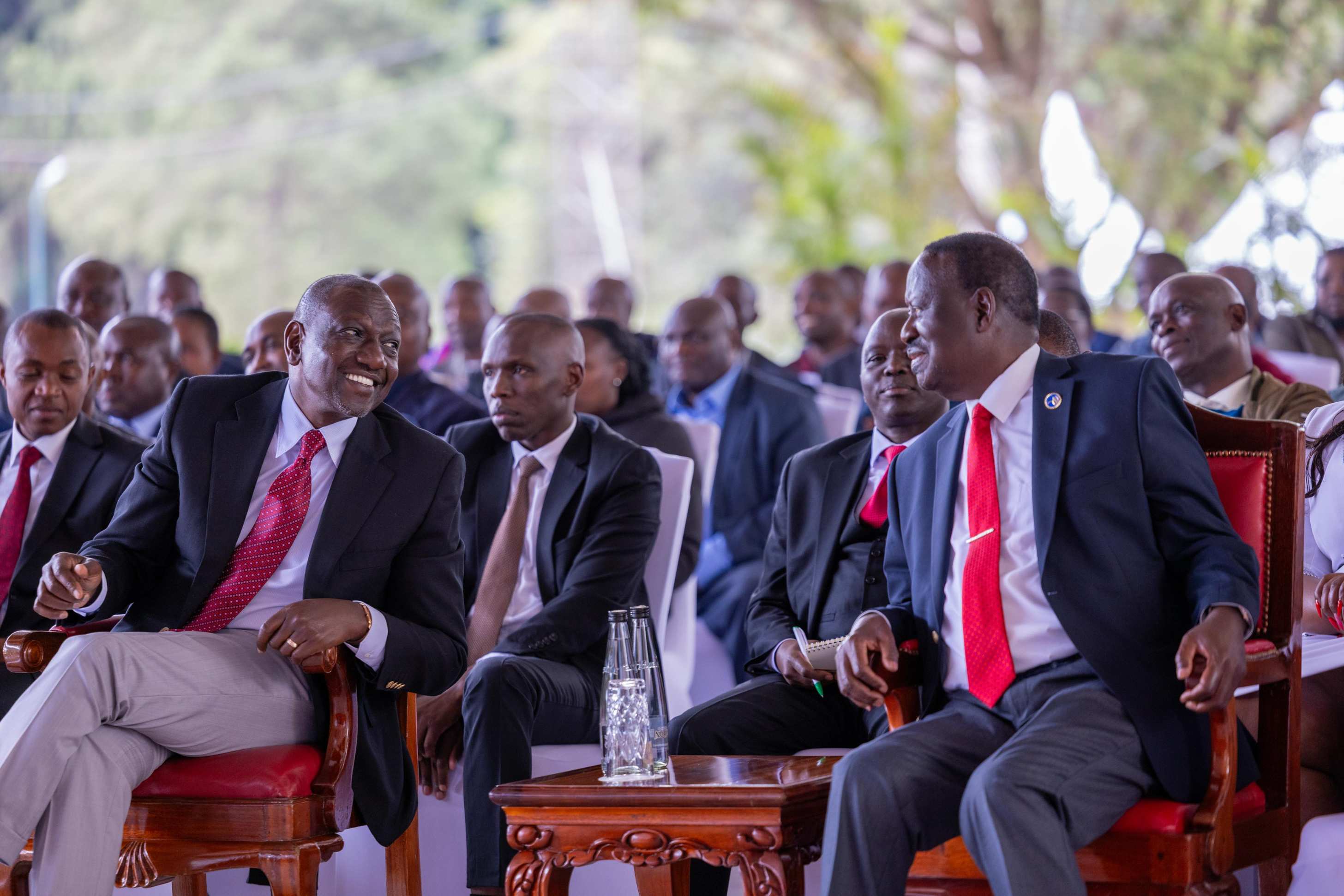TIFA survey shows majority of Kenyans disapprove Ruto-Raila political deal

The survey, released by TIFA on Thursday, September 11, 2025, shows that public rejection of the power-sharing deal has continued to rise over time, pointing to a growing sense of discontent among citizens.
A new opinion poll has shown that most Kenyans are not in favour of the Broad-Based government formed through a political agreement between President William Ruto and opposition leader Raila Odinga.
The survey, released by TIFA on Thursday, September 11, 2025, shows that public rejection of the power-sharing deal has continued to rise over time, pointing to a growing sense of discontent among citizens.
According to TIFA, the arrangement is facing a "legitimacy challenge," with resistance not only remaining widespread but also increasing.
“The broad-based government faces a legitimacy challenge, as opposition is not only dominant but also growing. Although support has inched up slightly, it remains far overshadowed by those opposed, and indecision is declining as citizens become more decisive in their stance,” TIFA said in the statement.
Data from the survey indicates that in August, 54 percent of Kenyans were against the Broad-Based government.
That figure rose to 64 percent in September. This shows a notable shift in public mood over a short period, with fewer Kenyans sitting on the fence.
In contrast, only 7 percent of respondents in the latest round of interviews said they had no opinion on the matter, down from 25 percent who remained undecided in August.
The report is based on a national study carried out by TIFA between August 23 and September 3, 2025.
During this period, 2,023 adult Kenyans were interviewed at their homes across all 47 counties. The participants were randomly selected to ensure a wide and balanced representation of the country.
Apart from gauging views on the political agreement, the survey also examined the state of the economy and general public satisfaction with government operations.
It further looked into citizen perceptions about key policy directions, ongoing governance issues, and the political scene ahead of the 2027 elections.
The report also made connections between how people feel about the Broad-Based government and their personal political leanings, offering insight into what might be influencing public opinion beyond identity and party loyalty.
